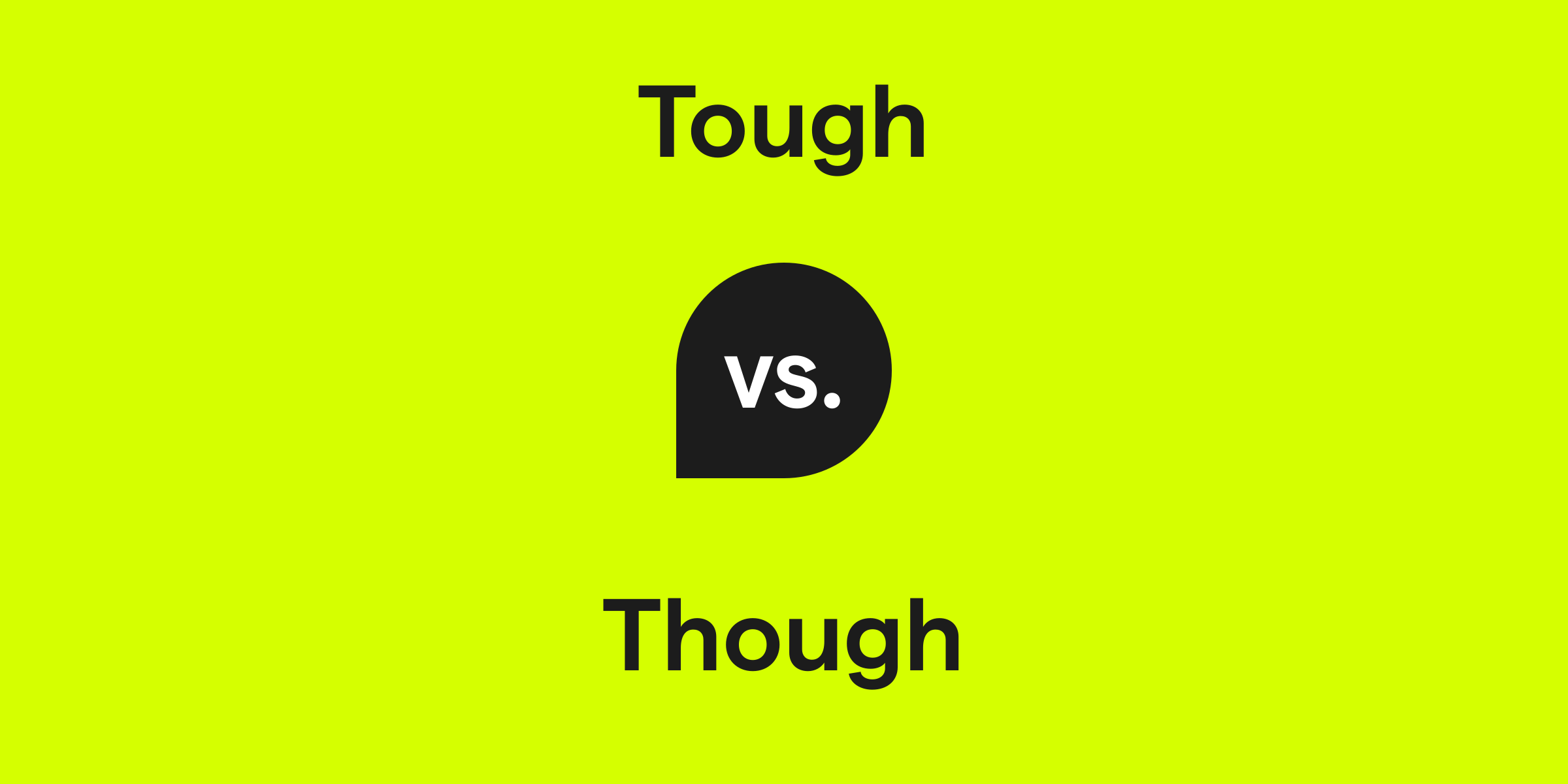Tough vs. Though: What's the Difference?
Understanding the difference between tough and though is essential for correct English usage. Tough, pronounced /tʌf/, is an adjective describing something that is hardy or difficult to break or damage. Though, pronounced /ðoʊ/, is a conjunction or adverb used to introduce a contrasting element in a sentence or to indicate that a statement applies despite something which might suggest otherwise.

How do you use the word tough in a sentence?
The word tough is typically used as an adjective to describe an object or person that is difficult to break or damage, or capable of handling difficult situations. It implies resilience and strength. When describing a person, it often conveys someone who is emotionally strong and unbending in the face of adversity.
Examples of tough in a sentence
- The durable material made the boots extremely tough and perfect for hiking.
- He gained a reputation for being the tough negotiator who never backs down.
- Despite the tough circumstances, she remained optimistic and pushed forward.
How do you use the word though in a sentence?
Though is used similarly to although, but it tends to be the more casual option and can be placed at the beginning, middle, or end of a sentence. It is often used in spoken language and can provide a less formal tone. When used at the end of a sentence, though takes on an adverbial role to add a contrasting comment or thought.
Examples of though in a sentence
- She didn’t know the answer, though she pretended to.
- It's hard to explain, though I'll give it a try.
- I might go to the party. I'm not sure, though.
Tough and though definition, parts of speech, and pronunciation
Tough definition:
Tough refers to something sturdy, strong, and able to endure hardship without being easily broken or damaged. It can also describe people who show courage and strength in difficult situations.
Tough parts of speech:
Tough pronunciation:
The word tough is pronounced as /tʌf/ with a short 'u' sound as in 'up' and ends with the 'f' sound.
Though definition:
Though is used as a conjunction or adverb to introduce contrast with the previous statement or to mean 'however' or 'nevertheless.'
Though parts of speech:
Though pronunciation:
The word though is pronounced as /ðoʊ/, which features the voiced 'th' sound as in 'this,' followed by a long 'o' as in 'go.'
Tough refers to something sturdy, strong, and able to endure hardship without being easily broken or damaged. It can also describe people who show courage and strength in difficult situations.
Tough parts of speech:
- Adjective: The tough fabric ensured that the tent would last for many seasons.
Tough pronunciation:
The word tough is pronounced as /tʌf/ with a short 'u' sound as in 'up' and ends with the 'f' sound.
Though definition:
Though is used as a conjunction or adverb to introduce contrast with the previous statement or to mean 'however' or 'nevertheless.'
Though parts of speech:
- Conjunction: She was very tired, though she managed to finish her work before the deadline.
- Adverb: I'm planning on going to the concert; I don't expect much, though.
Though pronunciation:
The word though is pronounced as /ðoʊ/, which features the voiced 'th' sound as in 'this,' followed by a long 'o' as in 'go.'
Tough vs. Though in a nutshell
Tough and though sound somewhat similar, but their meanings and uses are distinct. Tough is an adjective describing resilience, strength, and endurance, whether in materials or character. Though, typically a conjunction or adverb, introduces a contrasting idea or an exception to the statement it follows. Pronunciation is key to distinguishing these words: tough is enunciated as /tʌf/ and though as /ðoʊ/.
Get AI Writing Assistance Wherever You Type
Make sure your vocabulary is on point and every punctuation mark is in the right place, no matter where you’re working. Grammarly works across more than 1 million websites and apps so you can improve your writing without copying, pasting, or breaking focus.

More Commonly Confused Words
Interest piqued? Pore (not pour) over other commonly confused words to help your writing reach peak (not peek) performance.